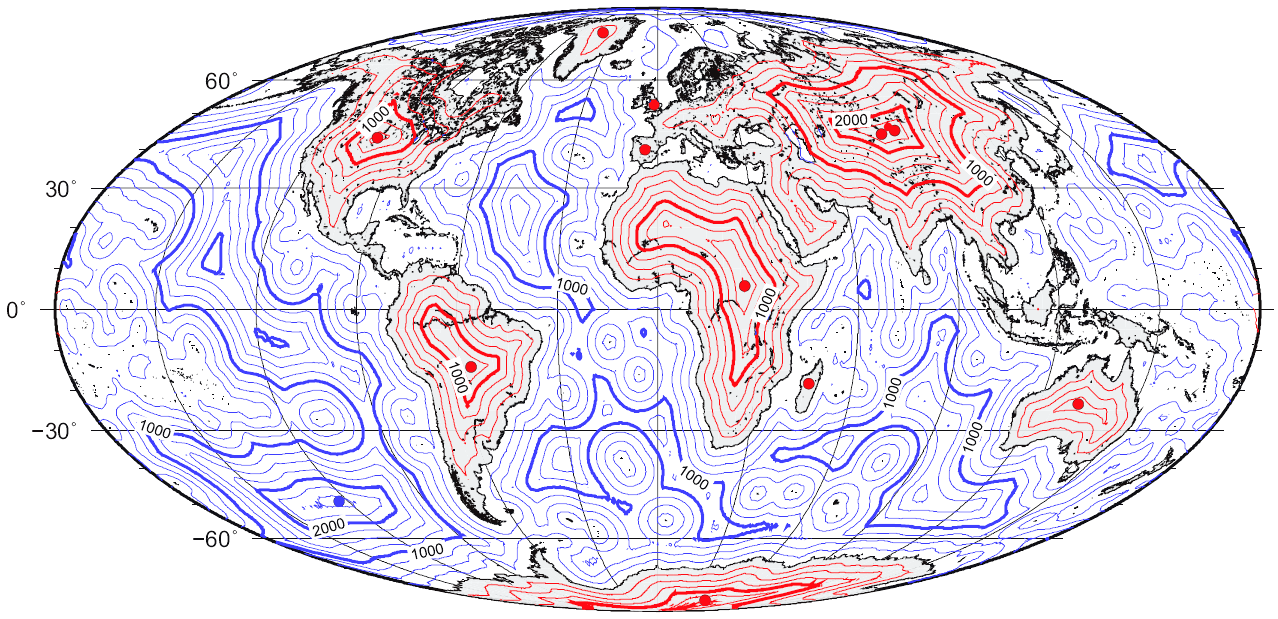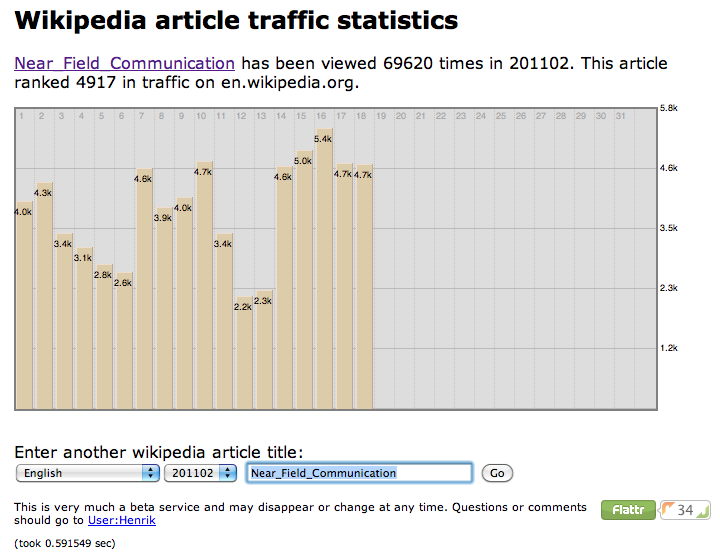Tag: wikipedia
-
The Southern Pole Of Inaccessibility
–
Since moving to the south pole, I’ve learned an incredible amount of new terms to describe the area around where I’m living. One such term is “Pole of Inaccessibility”. From Wikipedia: The southern pole of inaccessibility is the point on the Antarctic continent most distant from the Southern Ocean. A variety of coordinate locations have…
-
Wikipedia traffic tool
–
Quick post for today – This tool for looking at wikipedia traffic was just passed around my office. The tool, from Grok.se, lets users look at traffic trends on wikipedia articles over time. This screen shot below is for NFC, a wireless protocol that’s seen increasedinterest lately, as it starts to be integrated into mobile…
-
Should you have a company profile page on Wikipedia?
–
A friend of mine recently asked me about whether or not she should make a Wikipedia page for her company. Here’s my response… Choose carefully. Having a corporate wikipedia page can be a mixed blessing. On one hand, its great to have public info out there descibing all the wonderful services your company offers, interesting…


